In today’s hyper-competitive global marketplace, the ability to grow and scale quickly is essential for any business aiming to thrive. Artificial Intelligence (AI) has emerged as a game-changing force that is transforming the way companies expand. By automating operations, unlocking powerful customer insights, and enabling smarter decision-making, AI-driven business expansion offers unprecedented opportunities for growth and innovation.
This article explores the various facets of AI-driven business expansion, from defining what it entails to highlighting the key technologies, benefits, challenges, and real-world success stories. We’ll also provide practical guidance on how businesses can get started with AI and look ahead to the future trends shaping the landscape. Whether you’re a CEO, entrepreneur, or digital strategist, this comprehensive guide will equip you with the knowledge to leverage AI effectively and future-proof your business growth.
What Is AI-Driven Business Expansion?
Artificial Intelligence-driven business expansion refers to the strategic use of AI technologies to accelerate and optimize the growth and scaling of a company. Unlike traditional expansion methods, which often rely heavily on manual processes, intuition, and incremental improvements, AI leverages data-driven insights, automation, and predictive analytics to enable rapid and sustainable growth.
Key AI Technologies Behind Business Expansion
-
Machine Learning (ML): ML algorithms analyze large datasets to identify patterns and predict future outcomes, helping businesses anticipate market trends or customer behavior.
-
Automation: Robotic Process Automation (RPA) and intelligent automation reduce repetitive manual work in operations, freeing up human resources for strategic initiatives.
-
Predictive Analytics: AI models forecast sales trends, inventory needs, and customer demand to streamline decision-making.
-
Natural Language Processing (NLP): AI-powered chatbots and virtual assistants enhance customer interaction and support scalability.
-
Computer Vision and IoT: These technologies optimize supply chains and operational efficiencies through real-time monitoring.
Why AI-Driven Expansion Matters Today
According to McKinsey’s 2023 report on AI adoption, companies integrating AI into their growth strategies are seeing revenue increases up to 20% higher than their peers. Businesses leveraging AI are not just growing faster—they are reshaping entire industries by innovating new products, enhancing customer experiences, and expanding into new markets efficiently.
Key AI Technologies That Enable Business Growth
To understand how AI drives expansion, it’s crucial to explore the core technologies businesses use:
1. AI-Powered Customer Insights and Personalization
Customers today expect personalized experiences tailored to their preferences. AI analyzes customer data—from browsing history to purchase behavior—to provide hyper-personalized recommendations and targeted marketing campaigns.
-
Example: Netflix’s recommendation engine, powered by AI, drives over 75% of viewer activity by suggesting relevant content, resulting in higher engagement and global subscriber growth.
-
Benefits: Improved customer retention, higher conversion rates, and increased lifetime value.
2. Automation in Operations, Supply Chain, and Marketing
AI automates routine tasks, enabling companies to scale without proportional increases in resources.
-
Supply Chain: Amazon uses AI-powered robotics and predictive analytics to optimize inventory management, reduce delivery times, and manage demand fluctuations.
-
Marketing: AI tools automate email marketing, social media posting, and lead scoring, allowing marketing teams to focus on strategy and creativity.
3. Predictive Analytics for Market Trends and Decision-Making
By forecasting sales, identifying emerging trends, and assessing risks, AI allows businesses to make proactive decisions.
-
Gartner forecasts that by 2025, 70% of global businesses will rely on AI-driven predictive analytics for strategic planning.
4. AI-Driven Sales Tools and CRM Enhancements
AI-infused Customer Relationship Management (CRM) platforms like Salesforce Einstein enable sales teams to prioritize leads, forecast sales pipelines, and automate follow-ups.
Benefits of Using AI for Business Expansion
The integration of AI in business growth strategies delivers significant benefits:
Increased Operational Efficiency and Cost Reduction
Automating repetitive processes reduces human error, accelerates workflows, and cuts operational costs. For example, AI chatbots can handle thousands of customer queries simultaneously, reducing the need for large customer service teams.
Enhanced Customer Experience and Retention
AI’s ability to provide personalized experiences keeps customers engaged and loyal, increasing repeat sales and brand advocacy.
Faster Decision-Making and Market Responsiveness
AI analyzes real-time data enabling companies to pivot quickly in response to market changes or emerging opportunities.
Scalability Without Proportional Resource Increase
AI enables businesses to expand services or enter new markets without the traditional linear increase in expenses.
Data-Driven ROI and Measurable Growth Metrics
With AI, businesses can track performance using precise KPIs such as customer acquisition cost, conversion rates, and retention metrics, helping justify AI investments.
Real-Life Success Stories of AI-Driven Expansion

Amazon
Amazon’s use of AI spans warehouse robotics, recommendation engines, and logistics optimization. Their AI-driven supply chain allows for same-day delivery in many locations, helping Amazon dominate the e-commerce market.
-
Data Point: Amazon’s revenue grew from $136 billion in 2016 to over $500 billion in 2023, largely fueled by AI-enabled efficiencies.
Netflix
Netflix’s AI recommendation system customizes content for each user, resulting in increased viewing time and subscriber growth.
-
Impact: Netflix gained over 200 million subscribers worldwide, with AI-driven personalization cited as a key retention factor.
Salesforce
Salesforce’s Einstein AI improves sales outcomes by automating lead scoring, forecasting, and customer insights, enabling sales teams to focus on high-value tasks.
-
Result: Companies using Salesforce Einstein report up to 30% faster sales cycles.
Common Challenges and How to Overcome Them
Despite its benefits, AI-driven expansion is not without obstacles.
Data Quality and Integration Issues
Poor-quality or siloed data can undermine AI models. Businesses must invest in data cleaning and unified data platforms.
High Initial Investment and Unclear ROI
AI projects require upfront costs for technology, training, and infrastructure. Start small with pilot programs to demonstrate value before scaling.
Employee Resistance and Skill Gaps
Employees may fear AI replacing jobs or lack the skills to work with AI tools. Change management and upskilling programs are essential.
Ethical and Privacy Concerns
Responsible AI use involves addressing biases in algorithms and protecting customer data to maintain trust.
Strategies for Smooth AI Adoption
-
Conduct pilot projects to validate AI solutions.
-
Train employees and promote a culture of innovation.
-
Partner with trusted AI vendors with proven expertise.
How to Get Started with AI-Driven Business Expansion
Assess Your Business Needs
Identify pain points and areas where AI can deliver the most impact—customer service, sales, supply chain, etc.
Choose the Right AI Tools and Partners
Select AI solutions aligned with your business size and industry. For SMBs, affordable AI tools like chatbots and CRM automation offer quick wins.
Develop a Step-by-Step Roadmap
-
Define clear objectives and KPIs.
-
Start with pilot projects.
-
Measure outcomes and iterate.
-
Scale successful AI initiatives.
Set KPIs and Measure Impact
Track metrics such as revenue growth, cost savings, customer satisfaction, and time saved.
Practical Tips for SMBs
-
Use cloud-based AI platforms to reduce upfront costs.
-
Leverage AI-as-a-service providers for flexibility.
-
Focus on incremental adoption rather than wholesale transformation.
Future Trends in AI and Business Growth
Emerging AI Innovations
-
Generative AI: Creating content, designs, and code to accelerate innovation.
-
AI-Powered Decision Support: Enhanced AI tools that assist executives with scenario modeling.
AI Ethics and Regulation
As AI use grows, regulations around privacy and ethical use will shape how businesses deploy AI technologies.
Predictions for 2030 and Beyond
McKinsey predicts AI could add up to $13 trillion to the global economy by 2030, with business expansion driven by AI becoming the norm rather than the exception.
Staying Ahead in the AI Landscape
-
Continuous learning and adaptation.
-
Investing in AI talent and infrastructure.
-
Fostering partnerships with AI innovators.
Conclusion
Artificial Intelligence is no longer a futuristic concept—it’s an essential driver of modern business expansion. From enhancing customer experiences to optimizing operations and enabling smarter decision-making, AI offers businesses the tools to grow faster, scale efficiently, and compete globally.
The path to AI-driven growth requires thoughtful planning, investment, and an openness to change. But with the right approach, businesses of all sizes can harness AI to unlock unprecedented expansion opportunities.
Ready to future-proof your business with AI? Start exploring AI tools tailored to your growth needs today, and join the ranks of companies transforming their futures.
Call to Action:
If you’re ready to take the next step in AI-driven business expansion, subscribe to our newsletter for the latest insights, tools, and success stories. Or contact our experts for a personalized AI adoption roadmap tailored to your business goals.
